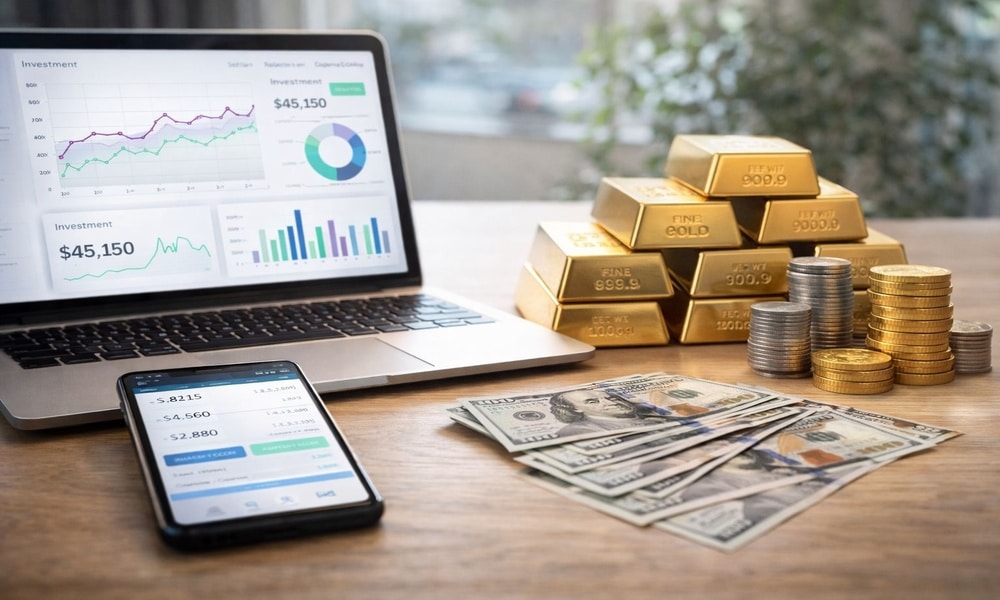In today’s fast-moving economy, small businesses need more than just capital—they need resilience. As costs rise, markets fluctuate, and uncertainty becomes the norm, smart companies are turning to a mix of digital tools and tangible assets to fund growth and protect their future.
Why Precious Metals Matter
One increasingly popular strategy is investing in precious metals. Unlike digital assets or paper stocks, gold, silver, and other metals offer something tangible—something that has stood the test of time. And the best part? These assets can be purchased outright online, making it easier than ever to take that first step toward financial stability.
You might be wondering: why precious metals? What makes them special in a world full of investment options?
Here’s the simple answer: precious metals are real, finite, and historically resilient. While currencies can lose value and companies can go under, gold and silver have consistently maintained their worth for thousands of years and Monex carries various sizes.
Let’s break down the key reasons why people turn to metals during times of uncertainty:
Tangible and Timeless
Precious metals like gold and silver are physical assets you can hold in your hand. They aren’t dependent on an internet connection or a company’s performance. Their value is recognized worldwide and has endured through economic collapses, wars, and financial crises.
Hedge Against Inflation
When the cost of living rises, paper currency often loses purchasing power. But metals tend to hold or even increase in value during inflationary periods. That makes them a smart counterbalance to cash savings or low-interest accounts.
Independent of Stock Market Volatility
While markets can be driven by speculation, corporate earnings, or global news, metals generally move according to different forces—like geopolitical tension, currency value, or industrial demand. This gives investors a way to diversify and spread their risk.
Proven During Crises
During the 2008 financial crisis, for example, gold prices surged as people looked for safe havens. The same pattern repeated in 2020 during the COVID-19 pandemic. When uncertainty strikes, metals often shine.
Types of Precious Metals and How to Choose
Not all metals are created equal. When building a resilient financial foundation, it helps to know your options. Here are the most common types of precious metals and what you should know about each:
Gold
Gold is the go-to metal for many investors. It’s stable, highly liquid, and universally valued. It’s often used to store wealth and preserve purchasing power over time. Whether in coin, bar, or jewelry form, gold is relatively easy to buy, sell, and store.
Silver
Silver is more affordable than gold, making it appealing for beginners. However, its price tends to be more volatile due to its industrial applications. It’s used in electronics, solar panels, and medical devices, which can affect demand.
Platinum and Palladium
These metals are less common in investment portfolios but play critical roles in industries like automotive manufacturing. They can be more speculative but may offer high returns in certain market conditions.
When choosing, consider your financial goals. Are you looking for stability, affordability, or potential growth? A mix may be the best strategy.
How to Start Investing in Precious Metals
Getting started with precious metals might sound intimidating, but it doesn’t have to be. There are several ways to begin, depending on your comfort level and investment style:
1. Physical Ownership
The most straightforward approach is to buy physical gold or silver. These come in the form of coins, bars, or rounds. Here’s what to keep in mind:
- Reputable Dealers: Always buy from trusted sources with transparent pricing and clear authentication processes.
- Storage: You’ll need a secure place to store your metals. A home safe, bank safety deposit box, or specialized vault service are all options.
- Insurance: Protect your investment with proper insurance, especially if storing at home.
2. Digital and Paper Investments
If handling physical metals isn’t your thing, consider these alternatives:
- ETFs (Exchange-Traded Funds): These track the price of gold or silver and can be bought like stocks through a brokerage account.
- Mining Stocks: Investing in companies that mine precious metals can offer exposure, though with added risks tied to business performance.
- Digital Gold Platforms: Some platforms allow you to buy fractional gold, which is stored in professional vaults, with the ability to sell or redeem at any time.
Metals as Part of a Bigger Picture
While precious metals offer many benefits, they shouldn’t be your only financial strategy. Building real resilience means thinking about the bigger picture.
Diversification Is Key
Experts generally recommend holding 5–15% of your portfolio in precious metals. This provides protection without sacrificing the growth potential of other assets like stocks, bonds, or real estate.
Metals Don’t Generate Income
It’s important to remember that unlike dividend-paying stocks or interest-bearing savings, precious metals don’t generate ongoing income. Their value lies in protection and long-term stability, not regular returns.
Consider Your Personal Goals
Are you preparing for retirement? Saving for your kids’ education? Protecting against inflation? Your investment mix should reflect your timeline, comfort with risk, and overall strategy.
Final Thoughts: Building for the Long Term
Financial resilience isn’t about reacting in fear—it’s about preparing with intention. By adding precious metals to your financial toolkit, you’re taking a step toward greater security and peace of mind.
You don’t have to make a huge investment to get started. Even a small amount of gold or silver can provide a sense of control and confidence, especially when the world feels uncertain.
So whether you’re just beginning your financial journey or looking to shore up an already strong foundation, precious metals can play a meaningful role. They’re more accessible than ever and may just be the edge you need in uncertain times.




Leave A Comment
You must be logged in to post a comment.